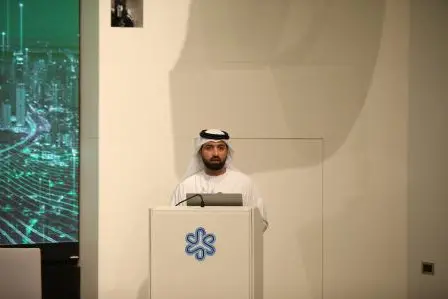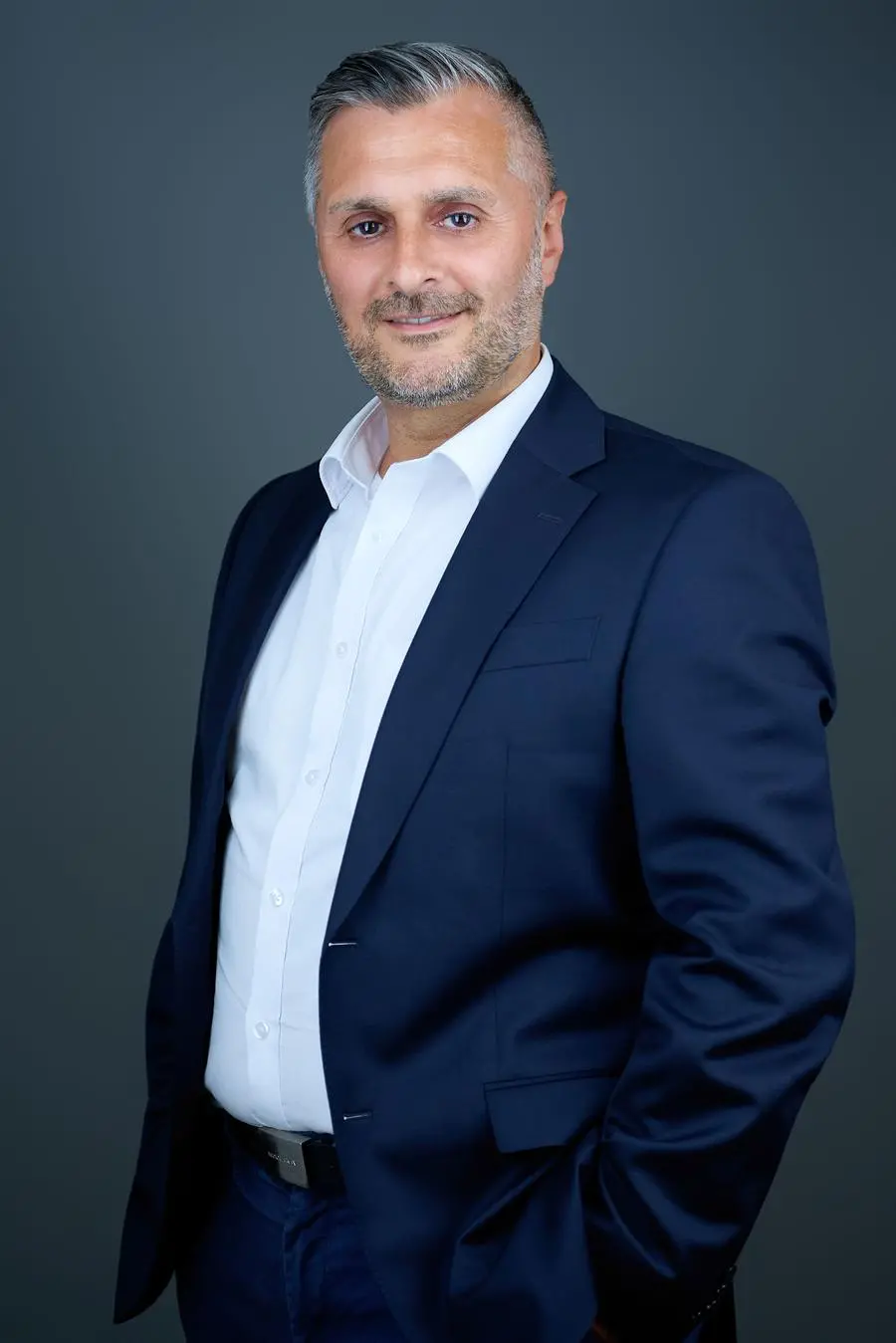PHOTO
Sharjah: Technology experts from the UAE’s public and private sectors have underscored at a recent NexTech gathering in at the Sharjah Research, Technology and Innovation Park (SRTIP) on Monday (September 20), that the UAE is a recognisd leader in the digital transformation industry, highlighting that forward-looking vision and strong human resources were among the key success factors for its growth and development.
They pointed out the vital role a robust infrastructure plays in the process, and also highlighted the pivotal role of service providers and managed IT services in facilitating the digital transformation journeys of public and private sector enterprises.
The observations were shared by a number of participants who convened for the second edition of the NexTech technology dialogue series organised by Sahab Smart Solutions in partnership with the Sharjah Digital Office. Titled 'The Future of Information Officers', this edition was hosted at the Sharjah Research, Technology and Innovation Park (SRTIP) comprised four discussion sessions, which were focused on empowering chief information officers (CIOs) with the knowledge of latest trends and challenges in the ICT sector.
The forum highlighted emerging digital strategies and technological advancements vital for public sector institutions to improve their internal processes and end-user services, in addition to investing in qualified cadre who would handle the entities' big data analysis to elevate and customise their digital strategies.
Sharing knowledge to overcome technology challenges
Speaking about the significant role of the discussion series, Amin Al Zarouni, CEO of Sahab Smart Solutions, said: “The second edition of NexTech’s discussions covers several vibrant topics in the technology sector ranging from the future of Chief Information Officers (CIOs) and Chief Digital Officers (CDOs), and explores the impact managed IT services can create for enterprises and their ambitions to innovate and excel in the digital front. The event also identified the growing importance of unique tech tools such as the establishment of Digital Excellence Centers as a platform which IT leaders can benefit from within their digital transformation strategies.”
He added: “The world is progressively becoming digital, and CIOs have become one of the most vital components that help businesses and enterprises navigate forward through some of the complex challenges that arise from this sector. That said, NexTech functioned as a key guide to present the wide range of opportunities which present and future CIOs can benefit from through their mission of establishing digital excellence through transformation projects.”
During the event, Abdelrahim Al Zarouni, Business Development Manager at Sahab Smart Solutions, noted that as the world ushers in the post-COVID era, enterprises who are eager to lead the digital front and stay ahead of competition and exceed expectations of their stakeholders and customer base, will require the necessary guidance to explore the limitless opportunities the technology map has to offer.
He added that this was one of Sahab’s key principles behind the establishment of the NexTech series, which aims to become the central platform for knowledge exchange, highlight emerging trends in the digital world, and enable the local community to collectively benefit from the advice shared by participants on ways to overcome challenges.
He also underscored the importance of the partnership with the Digital Sharjah Office in organising this initiative, saying that the discussions offered a unique opportunity to put forth practical recommendations for adopting new digital transformation strategies.
A new paradigm of CIO
The first discussion session titled, 'A Digital Centre of Excellence: The New Paradigm of CIO's', analysed the benefits of developing a sustainable and strategic digital centre to advance the public sector’s services and operations. At the session, moderated by Ahmed Al Jabahji, Digital Business Manager at Sahab, panellists also offered insights into the new tools and methodologies required to build a successful digital centre.
During the discussion, Feras Juma, IoT and Integration Solutions Manager at Software AG, noted that prior to the establishment of a digital centre, institutions must demonstrate a clear vision and timeline of their future direction and services and provide a comprehensive ecosystem of smart solutions. He further emphasised the necessity of having a dedicated team focused on implementing the digital objectives of the institution.
For his part, Hisham Barrania, Senior Solutions Architect at OutSystems, highlighted that a digital centre was essential for every institution to launch initiatives and programmes in a timely manner, and to ensure the capability of overcoming any challenges related to technological transformation.
Managed IT Services
The second discussion, titled 'Managed IT Services: A New Tool in the Arsenal of Information Professionals', was moderated by Mohamad Alameddine, Head of Managed Services at Sahab.
Speaking at the session, Shaikha Al Marzooqi, Information Technology Manager at Sharjah Asset Management, said: "The relationship between service providers and institutions is of strategic importance as it is often a long-term agreement. The managed services are essential for institutions to carry out their operations seamlessly."
She added that appropriate infrastructure is key to the success of any digital transformation journey, and will empower institutions in providing advanced services and solutions.
Her colleague, Amna Al Obeidli, Head Information Technology Infrastructure, pointed out that managed services have a positive impact on an institution’s IT departments as it streamlines their duties and enhances the overall development and advancement of internal departments.
Advancing digital transformation strategies
During the third discussion titled, 'Infusing Digital DNA: Optimising Digital Strategies for Transformation', Fatima Alhammadi, from the Digital Sharjah Office, said: "There are many digital transformation programmes available today, but the choice of a suitable programme is dependent on the goals, criteria, and infrastructure of institutions." She emphasised the importance of having comprehensive strategies in place and undertaking in-depth studies during the digital transformation process.
For his part, Dr. Mohsin Balwan, Director of Traffic Planning and Studies at the Sharjah Roads and Transport Authority, said that automation and digitisation are mere tools and that the human cadre is the most important aspect to consider when undertaking digital transformation. “If the human cadre is not highly qualified, the process won't be a success," he said.
Hala Banihashem, IT Chief Officer at the Sharjah National Oil Corporation (SNOC), said: “Setting goals and objectives is a strategic aspect of the digital transformation process. However, the important question to consider is: Does an institution want to keep pace with technological advancements, and utilise them to improve their productivity or explore new business opportunities?”
CIO vs CDO, who will lead?
The final discussion, 'CDO vs CIO, Who Will Lead?', was led by Amina Abdulrahim, Head of IT at the Engineering Office of His Highness Sheikh Mohammed Bin Rashid Al Maktoum, Vice President and Prime Minister of the UAE and Ruler of Dubai; Ali Sajwani, Founder & CEO of Grape Tech; and Ali Abuzinjal, Director of Digital Transformation at SRTIP.
Abdulrahim highlighted several pillars to activate the role of CIOs including ensuring the availability of skilled personnel in the top management, implementation of feasible digital transformation strategies, and the ability to foresee and be prepared for unprecedented turn of events.
Sajwani and Abuzinjal opined that CDOs and CIOs play complementary roles in institutions. While CIOs have strategic operational responsibilities, CDOs oversee the technical operations, they noted.
Fifty senior officials and key decision-makers partook in the inaugural iteration of NexTech, held in May this year under the theme, 'The Formula for Digital Transformation Excellence' in partnership with the Higher Committee for Digital Transformation in Sharjah. The event comprised a series of activities which aimed to facilitate knowledge and expertise exchange among technology experts in the country.
-Ends-
About Sahab Smart Solutions:
Established in 2018 by the Sharjah Asset Management Holding (SAMH), Sahab Smart Solutions is the preferred technology partner of the Government of Sharjah, leading digital transformation across the emirate while supporting the UAE’s goals in innovation and digitisation.
Sahab drives digital transformation across government platforms by implementing innovative smart solutions that are transparent, data-driven, accessible, and user-oriented. Sahab aims to enhance the business performance of government entities by leveraging their capabilities for economic growth and a better quality of life for Sharjah’s and UAE’s citizens and residents.
Sahab also supports clients in the automation of business processes, monitoring of performance, and creating value by leveraging their capabilities to reinvent their core business. Sahab has created state-of-the-art platforms to integrate the management of its clients’ assets and functionalities. This has helped it adopt a direct-to-consumer strategy across all of it products and services which eliminates intermediaries and loss of time and energy, while ensuring shorter lead times and greater effectiveness in delivery.
For any press inquiries please contact:
Mousa Nimer
National Network Communications (NNCPR)
m.nimer@nncpr.com
© Press Release 2021
Disclaimer: The contents of this press release was provided from an external third party provider. This website is not responsible for, and does not control, such external content. This content is provided on an “as is” and “as available” basis and has not been edited in any way. Neither this website nor our affiliates guarantee the accuracy of or endorse the views or opinions expressed in this press release.
The press release is provided for informational purposes only. The content does not provide tax, legal or investment advice or opinion regarding the suitability, value or profitability of any particular security, portfolio or investment strategy. Neither this website nor our affiliates shall be liable for any errors or inaccuracies in the content, or for any actions taken by you in reliance thereon. You expressly agree that your use of the information within this article is at your sole risk.
To the fullest extent permitted by applicable law, this website, its parent company, its subsidiaries, its affiliates and the respective shareholders, directors, officers, employees, agents, advertisers, content providers and licensors will not be liable (jointly or severally) to you for any direct, indirect, consequential, special, incidental, punitive or exemplary damages, including without limitation, lost profits, lost savings and lost revenues, whether in negligence, tort, contract or any other theory of liability, even if the parties have been advised of the possibility or could have foreseen any such damages.




















